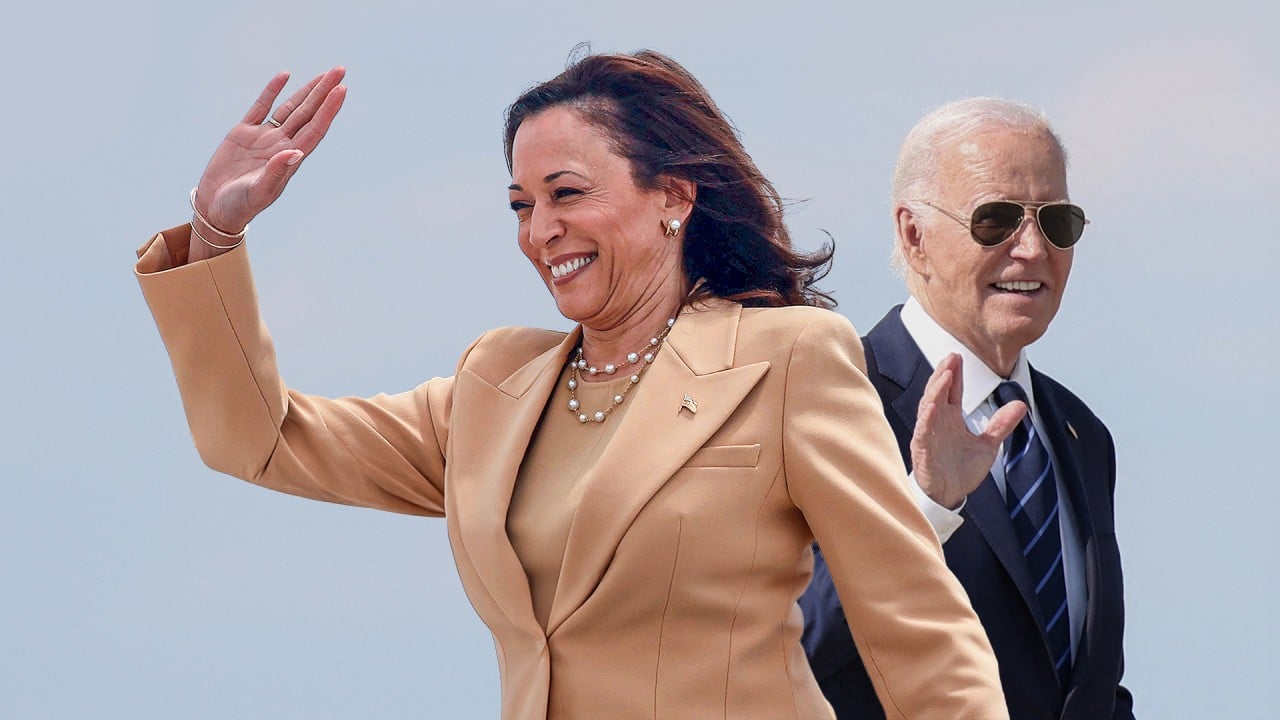“These unlawful claims … continue to undermine the rules-based order and threaten the sovereignty of nations,” Harris declared in a firm rebuke of China’s expansionist ambitions in the hotly contested waterway.

“We must stand up for principles such as respect for sovereignty and territorial integrity, unimpeded lawful commerce, the peaceful resolution of disputes,” Harris said aboard a Philippine coastguard patrol ship. “We will continue to rally our allies and partners against unlawful and irresponsible behaviour.”
“When the international rules-based order is threatened somewhere, it is threatened everywhere,” Harris warned, underscoring the Biden administration’s commitment to confronting China’s assertiveness.
“Harris herself has shared little about her own thoughts on foreign policy matters,” said Felix Chang, a senior fellow at the US-based Foreign Policy Research Institute think tank. “Given the lack of meaningful indications to the contrary, I, like many others, believe there will be broad continuity from the foreign policies of the current Biden administration.”
Still, Stromseth argued that her deep immersion in Southeast Asian affairs as vice-president has equipped her with invaluable insights on the region’s geopolitical flashpoints, from China’s maritime ambitions to climate challenges in the Mekong subregion.
“She has gained first-hand experience on hot-button issues,” Stromseth said.
Harris has stressed in interviews the need for the US to deepen its engagement with Southeast Asia, a region that accounts for one-third of global shipping flows and is the fourth-largest market for American exports.
As a senator she dealt mostly with domestic affairs such as gun control and healthcare, and has limited prior engagement on foreign affairs, said Dinna Prapto Raharja, a senior policy adviser on international relations and founder of independent think tank and training institute Synergy Policies.
As president, Harris would likely focus more on Asean as a bloc while pursuing bilateral ties with major economies like Indonesia, Vietnam and Thailand on economic issues, Dinna said.
If Harris hewed closely to Biden administration policies, her China and Southeast Asia strategy would likely differ from the Trump era “only in degree, rather than in direction”, said Chang of the Foreign Policy Research Institute.
“After all, Biden’s policies were broadly a continuation of those policies set in place during Trump’s first term, albeit with a greater emphasis on cooperation with US allies,” Chang said, noting that Trump’s hallmark confrontational approach to China had “endured” under the current administration.
With the presidential election looming, Chang expressed hope that the coming debate between Harris and Trump would provide greater clarity on her foreign policy stance.
“My hope is that more light will be shed on Harris’ personal views on China, Southeast Asia, and the rest of the world during her debate against Trump on September 10,” he said.

Should Harris triumph in November, the foreign policy team assembled by Biden is likely to remain in place during the early stages of her administration, according to Chang.
“I imagine there would be continuity at least in terms of the advice they would provide to her,” he said, referring to the likes of Secretary of State Antony Blinken, Defence Secretary Lloyd Austin and National Security Adviser Jake Sullivan.
Yet Harris’ “recurring problem” of high staff turnover could complicate that transition, Chang cautioned. Former House Speaker Kevin McCarthy has recently raised concerns about her struggles to retain personnel during her time as vice-president and as a senator.
“Nobody lasts very long” working for Harris, McCarthy remarked last month, echoing a report by the government watchdog OpenTheBooks.com which found the vice-president was experiencing a 91.5 per cent staff turnover rate – surpassing the rates under Biden (77 per cent) and Trump (72 per cent).
Still, some experts believe a President Harris could bring a more engaged approach to US-Asean relations compared to her predecessors.
“Asean could expect a greater focus on Myanmar from a Harris administration than it ever did from the Biden – and, for that matter, the Trump – administrations,” See Seng Tan, a research adviser at Singapore’s S. Rajaratnam School of International Studies, wrote in a research paper published last month.
Tan noted that as a senator, Harris had been active in legislating against human rights abuses in Myanmar, an issue she has repeatedly raised during her trips to Southeast Asia.
And unlike Trump, who failed to attend East Asia summits and took part in just one of three Asean-US meetings during his term, Tan suggested a President Harris was more likely to show up for Asean meetings in person – a shift that could reinvigorate Washington’s regional strategic engagement.


